A national survey conducted by the DataSenado Institute revealed a strong trend of support for the legalization of casinos in Brazil. According to the survey, 60% of the population, which represents approximately 102 million Brazilians, were in favor of the approval of Bill No. 2,234 of 2022, currently under debate in the Senate. Only 34% were against it, while 6% still have no clear opinion on the matter.
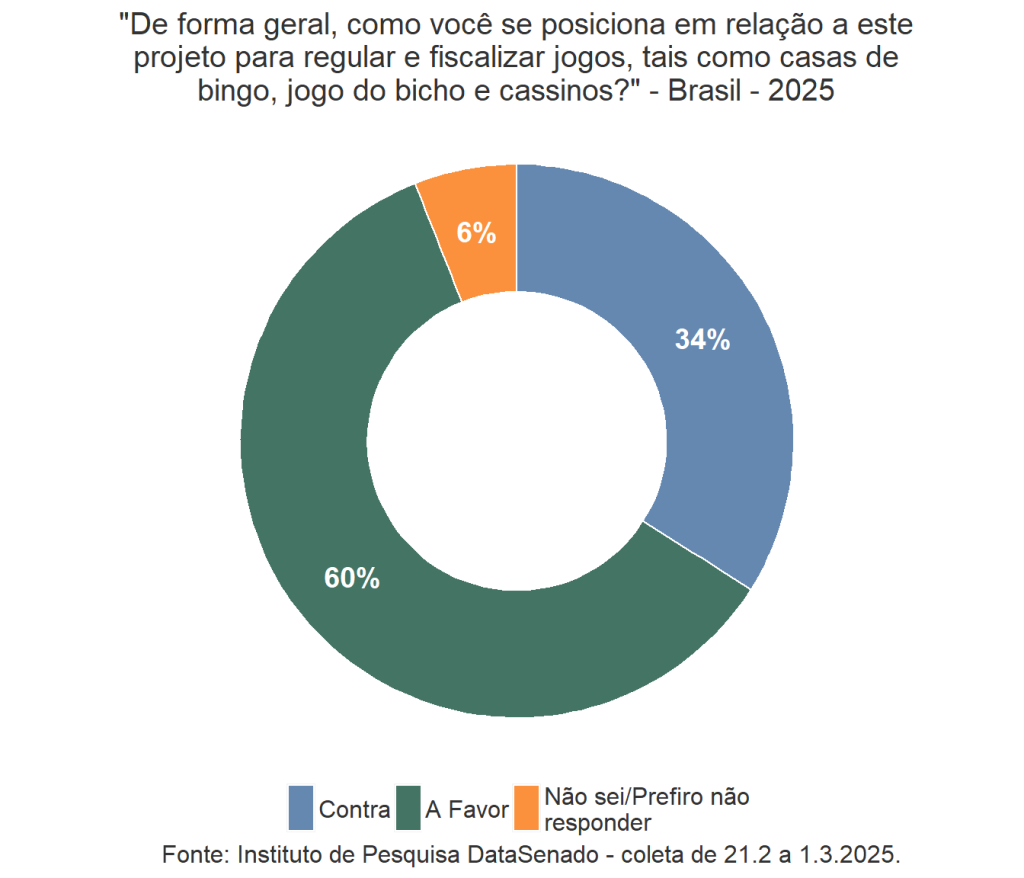
Potential for participation in legalized casinos and possible increase in revenue
The study found that more than a quarter of Brazilians aged 16 or over, around 44.2 million people, are interested in attending or participating in games such as casinos, bingo and jogo do bicho, if they are authorized. This segment represents a potential audience that could directly benefit, if the legislation is passed.
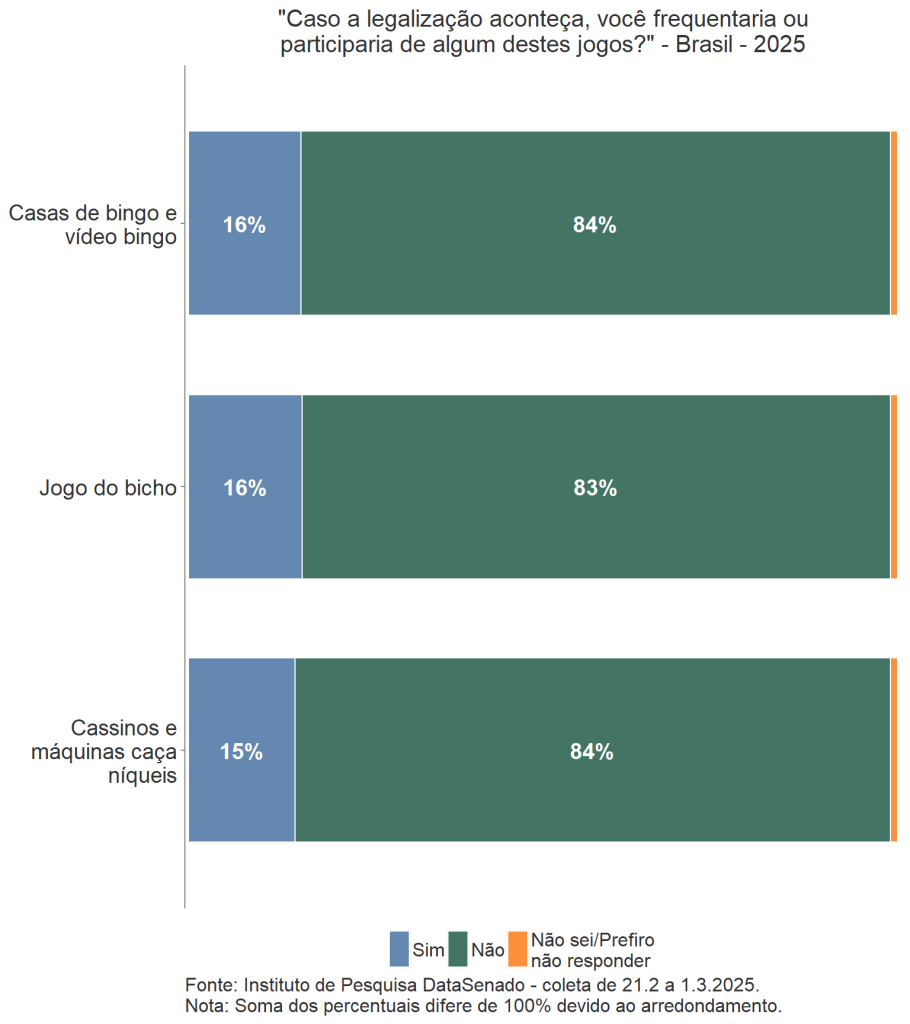
The expectation of increased tax revenue motivates a significant portion of Brazilians. According to the survey, 58% of respondents believe that legalizing gambling and casinos in the country will lead to increased tax revenue. For 22% of participants, the measure would not change the amounts collected and, for 9%, it could even lead to a reduction in taxes.
Impact on the job market and national registry of people with gaming addiction
The survey also highlighted the positive impact on job creation. According to the data, 44% of the population believes that authorization for the installation of casinos will result in more jobs in Brazil. Another 36% believe that there would be no significant difference, while only 11% believe that there would be a reduction in jobs.
The proposal to create a confidential national registry of people with gambling and casino addictions has the support of 54% of Brazilians. The goal is to prevent these people from visiting gambling houses, protecting the health and well-being of the population. For 29%, the measure “would make no difference”; while 13% consider the proposal negative.
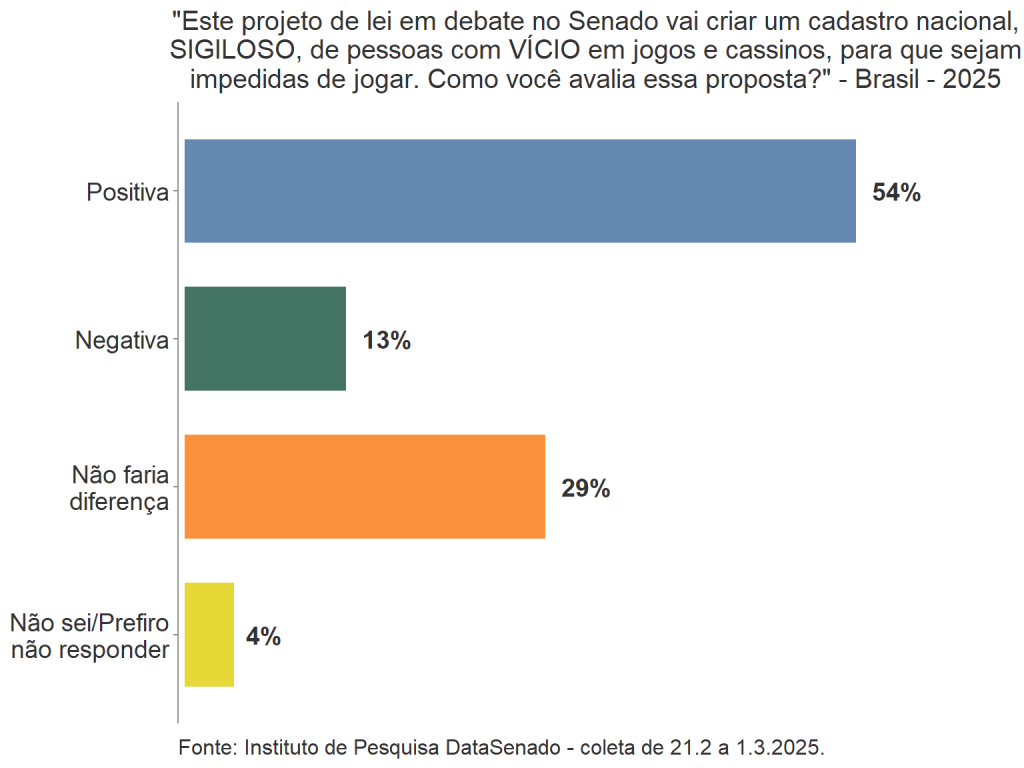
Anti-money laundering rules and monitoring of casino machines in Brazil
Concerns about security and transparency were highlighted. Eight out of ten Brazilians (82%) consider the adoption of rules to prevent money laundering and financing of organized crime through casinos to be “Very important” (65%) or “Important” (17%). Only 3% consider such rules to be “Somewhat important”, while 12% consider them “Not at all important”.
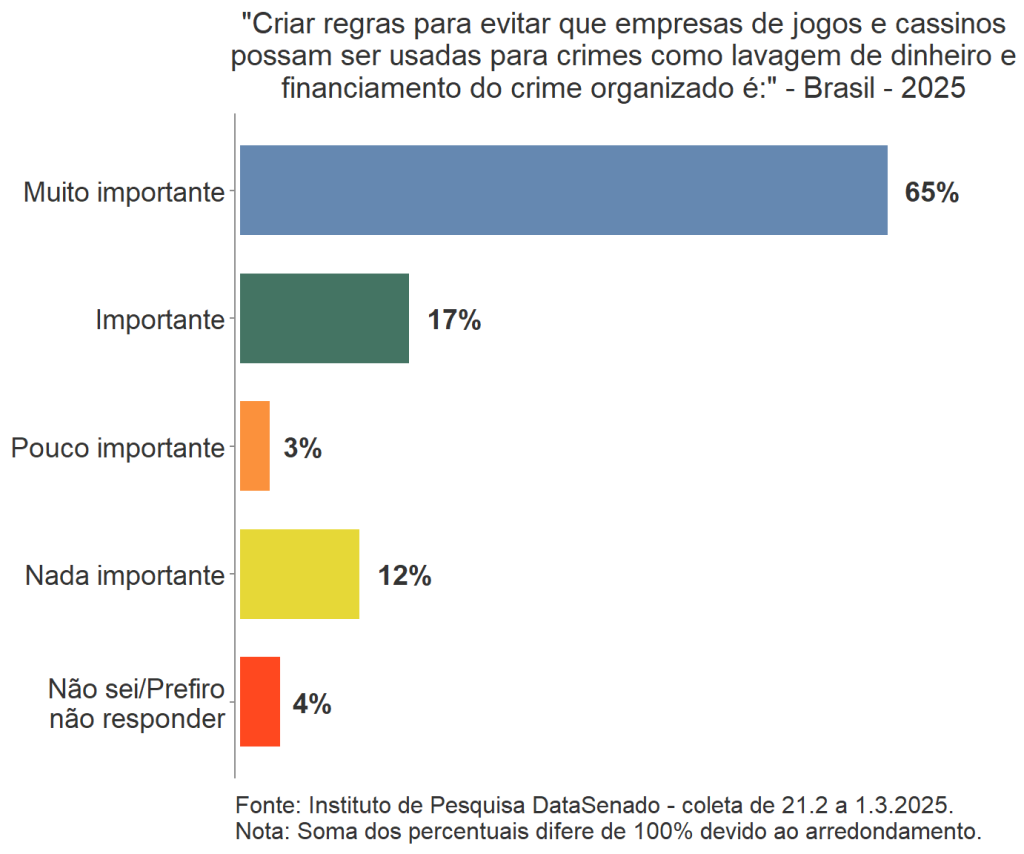
The majority of the population (62%) positively evaluates the proposals to monitor games and machines available in casinos, especially slot machines. The objective is to ensure honesty in games and transparency in rules. For 24%, the measure would be neutral, and for 10% it would have a negative impact.
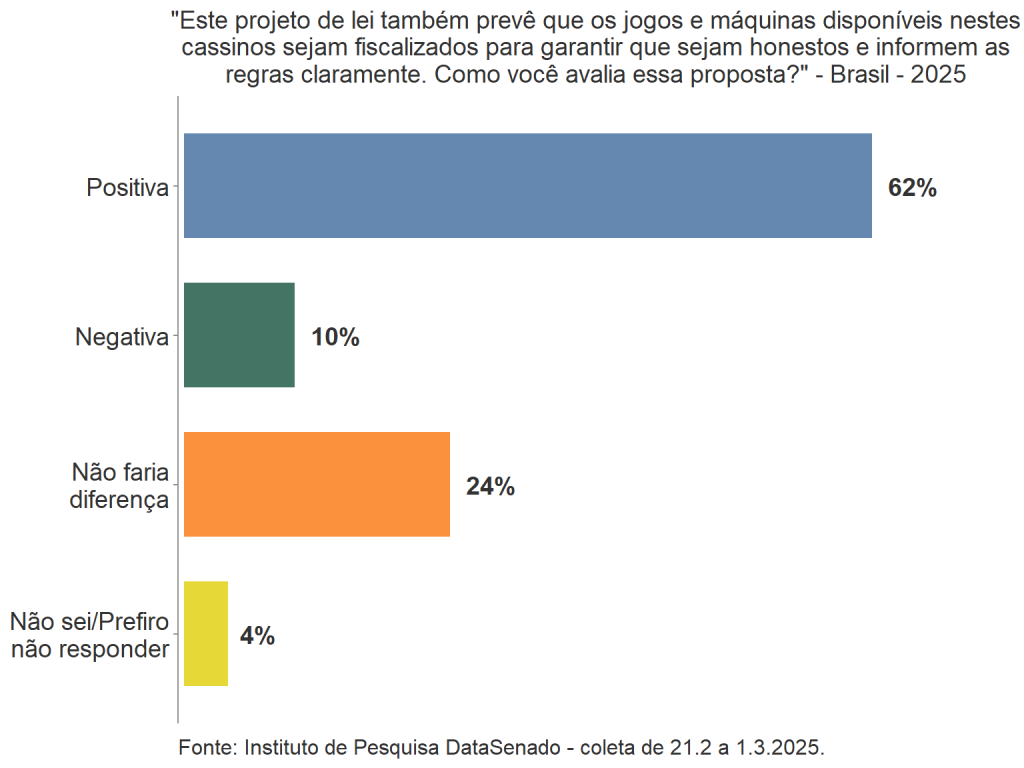
The survey showed that 77% of Brazilians consider the creation of rules to avoid gambling-related debt to be “Very important” (52%) or “Important” (25%). Only 5% see this action as “Not very important” and 16% do not consider it relevant.
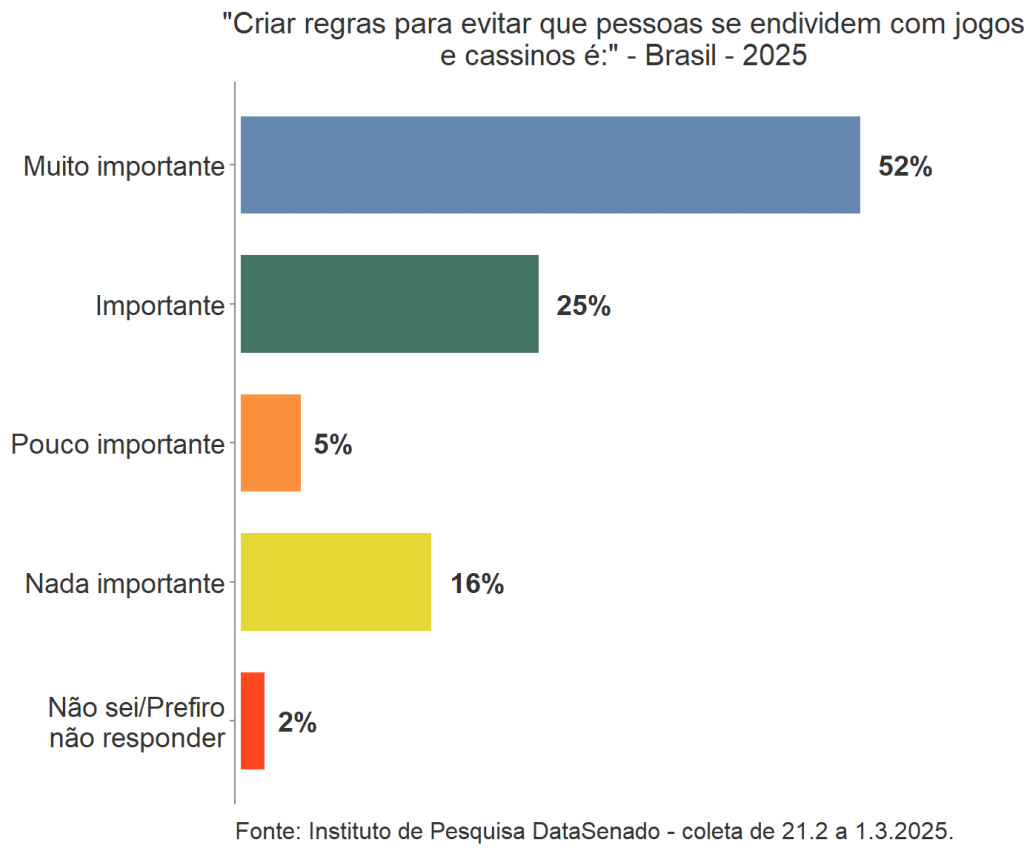
You can also read the full report on the official DataSenado website.



